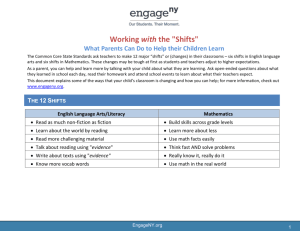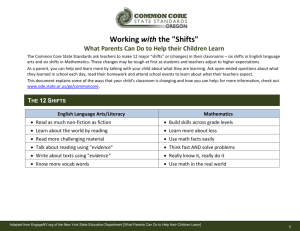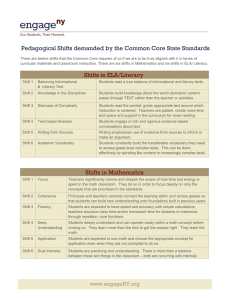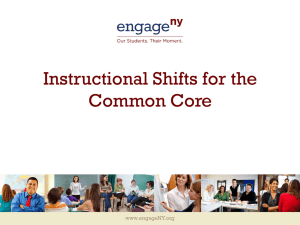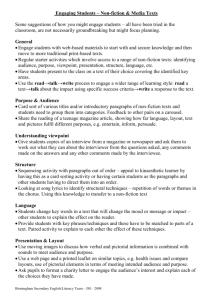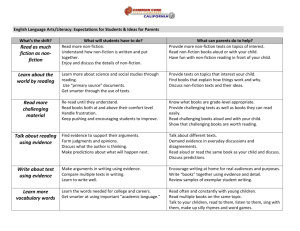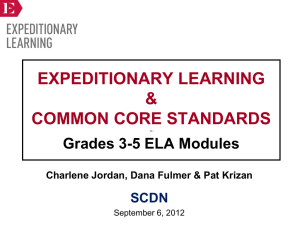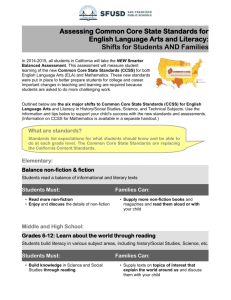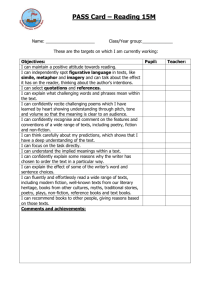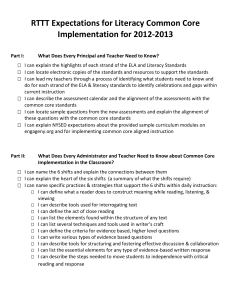A Common Core Snapshot
advertisement
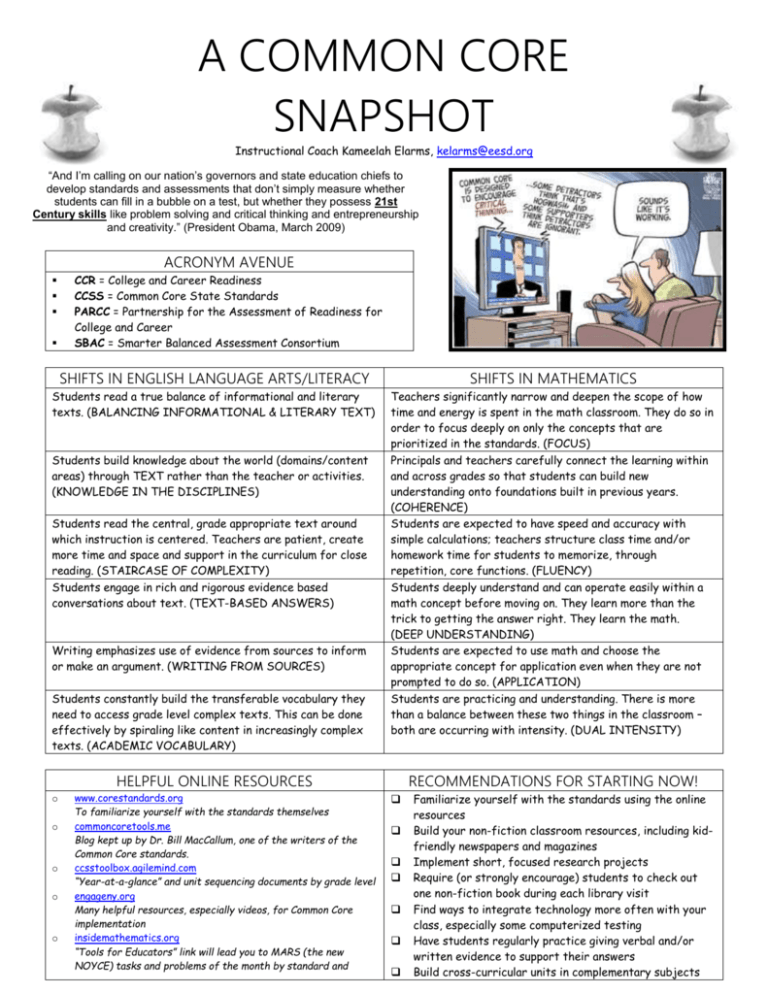
A COMMON CORE SNAPSHOT Instructional Coach Kameelah Elarms, kelarms@eesd.org “And I’m calling on our nation’s governors and state education chiefs to develop standards and assessments that don’t simply measure whether students can fill in a bubble on a test, but whether they possess 21st Century skills like problem solving and critical thinking and entrepreneurship and creativity.” (President Obama, March 2009) ACRONYM AVENUE CCR = College and Career Readiness CCSS = Common Core State Standards PARCC = Partnership for the Assessment of Readiness for College and Career SBAC = Smarter Balanced Assessment Consortium SHIFTS IN ENGLISH LANGUAGE ARTS/LITERACY SHIFTS IN MATHEMATICS Students read a true balance of informational and literary texts. (BALANCING INFORMATIONAL & LITERARY TEXT) Teachers significantly narrow and deepen the scope of how time and energy is spent in the math classroom. They do so in order to focus deeply on only the concepts that are prioritized in the standards. (FOCUS) Principals and teachers carefully connect the learning within and across grades so that students can build new understanding onto foundations built in previous years. (COHERENCE) Students are expected to have speed and accuracy with simple calculations; teachers structure class time and/or homework time for students to memorize, through repetition, core functions. (FLUENCY) Students deeply understand and can operate easily within a math concept before moving on. They learn more than the trick to getting the answer right. They learn the math. (DEEP UNDERSTANDING) Students are expected to use math and choose the appropriate concept for application even when they are not prompted to do so. (APPLICATION) Students are practicing and understanding. There is more than a balance between these two things in the classroom – both are occurring with intensity. (DUAL INTENSITY) Students build knowledge about the world (domains/content areas) through TEXT rather than the teacher or activities. (KNOWLEDGE IN THE DISCIPLINES) Students read the central, grade appropriate text around which instruction is centered. Teachers are patient, create more time and space and support in the curriculum for close reading. (STAIRCASE OF COMPLEXITY) Students engage in rich and rigorous evidence based conversations about text. (TEXT-BASED ANSWERS) Writing emphasizes use of evidence from sources to inform or make an argument. (WRITING FROM SOURCES) Students constantly build the transferable vocabulary they need to access grade level complex texts. This can be done effectively by spiraling like content in increasingly complex texts. (ACADEMIC VOCABULARY) HELPFUL ONLINE RESOURCES o o o o o www.corestandards.org To familiarize yourself with the standards themselves commoncoretools.me Blog kept up by Dr. Bill MacCallum, one of the writers of the Common Core standards. ccsstoolbox.agilemind.com “Year-at-a-glance” and unit sequencing documents by grade level engageny.org Many helpful resources, especially videos, for Common Core implementation insidemathematics.org “Tools for Educators” link will lead you to MARS (the new NOYCE) tasks and problems of the month by standard and RECOMMENDATIONS FOR STARTING NOW! Familiarize yourself with the standards using the online resources Build your non-fiction classroom resources, including kidfriendly newspapers and magazines Implement short, focused research projects Require (or strongly encourage) students to check out one non-fiction book during each library visit Find ways to integrate technology more often with your class, especially some computerized testing Have students regularly practice giving verbal and/or written evidence to support their answers Build cross-curricular units in complementary subjects A COMMON CORE SNAPSHOT o Instructional Coach Kameelah Elarms, kelarms@eesd.org such as Math and Science or Language Arts and Social Studies grade level. “Classroom Visits” link shows them in action! www.achievethecore..org Everything from modules to lessons to parent resources SOURCE: "Common Core Shifts." EngageNY. NYESD, 30 Oct. 2012. Web. 19 Aug. 2013
